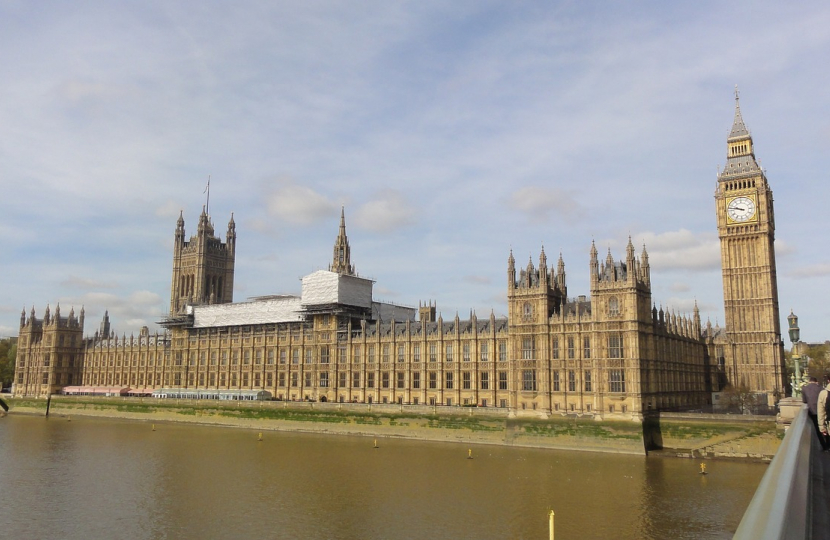
Members of Parliament are elected to the House of Commons to represent the interests and concerns of all the people who live in their constituency, whether they voted for them at the General Election or not. In line with strict Parliamentary Protocols, Members of Parliament are only able to deal with issues raised by people who live in their constituency, called constituents.
To check if you are one of my constituents, please enter your postcode on the Parliament website.
MPs consider and vote on legislation and use their position to ask government ministers questions about current issues.
We split our time between working in Parliament and working in the constituency. In Parliament, I spend my time fighting for the interests of my constituents, attending debates, scrutinising and voting on legislation, and attending meetings. I hold advice surgeries for my constituents (where constituents can come and talk to me about any local issues and problems), attend meetings and community events, as well as visit local organisations and businesses across the constituency.
When a constituent writes to me, there are several ways in which I can try to make progress on their behalf, for example, writing to relevant organisations or asking questions in the House.
Oral or Written Questions
Once a month each minister from each government department answers questions from MPs at the Despatch Box in the Chamber of the House. There is a limit to the number of questions that can be asked but I can also table a written question to the relevant government department, which are published in Hansard.
Adjournment Debates
MPs may be able to raise a constituent’s issue in a half-hour Adjournment Debate. To get an Adjournment Debate, MPs must be successful in a ballot of Members of Parliament or have the subject chosen by the Speaker. The debates are usually the last business of the day and a government minister responds at the end of the debate.
Petition
Members of Parliament can present a petition to Parliament on behalf of their constituents. The format and wording of the petition need to be in a particular way. For more information or guidance, please contact:
Clerk of Public Petitions
Journal Office
House of Commons
London SW1A 0AA
http://www.parliament.uk/get-involved/have-your-say/petitioning/public-petitions
What I cannot do, however, is have any jurisdiction over local Council decisions. I can write to the council on your behalf and ask them to look into a problem or to reconsider an issue. In the first instance though, constituents should always contact their local council or councillor directly.
Members of Parliament can assist constituents with all matters for which Parliament or central government is responsible, such as:
- Tax queries involving the HM Revenue and Customs Department.
- Issues dealt with by the Department for Work and Pensions such as benefits, pensions and National Insurance.
- Issues dealt with by the Home Office, such as immigration.
- Issues dealt with by the Department of Health, such as hospitals and the National Health Service (NHS).
- Issues dealt with by the Department for Education, such as academy status and educational grants.
As a member of Parliament, I am unable to assist with issues that fall outside of my remit.
An MP is unable to settle private disputes with neighbours or employers, nor can they help in family arguments.
An MP cannot intervene in operational policing matters and they cannot influence the outcome of an investigation or direct police action.
An MP cannot interfere with decisions made in court, or legal proceedings, or offer legal advice.
Please note, that in some cases, legal proceedings will be the most appropriate way to take a case forward. As an MP, I am not in a position to provide legal assistance.
I will, however, try to assist you using the channels that are available to me and if I can't help, I will explain why I cannot take your case forward.